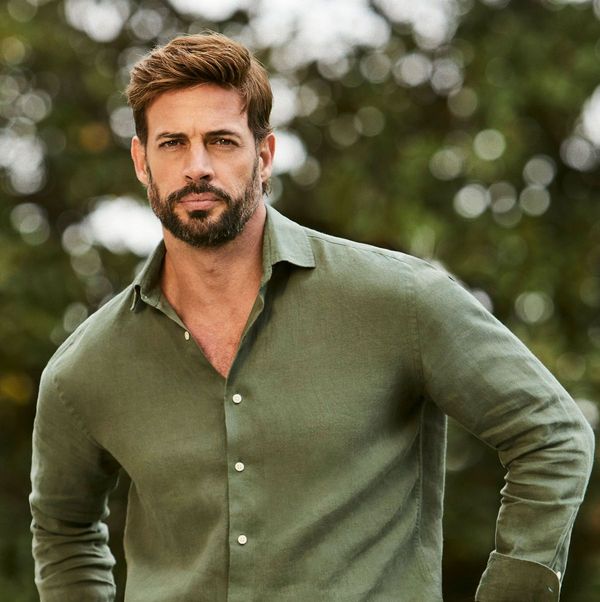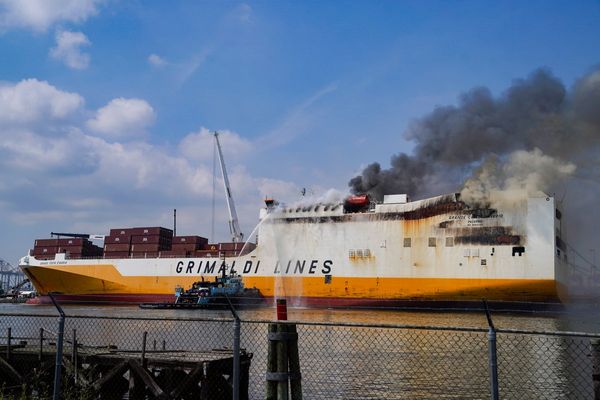Russia evacuates its embassy in Kyiv, as fears mount that Russian President Vladimir Putin might be about to order an invasion of Ukraine.
At the same time, Ukraine's Foreign Ministry warned citizens not to visit Russia and urged those already there to leave the country.
Look back at how the day unfolded on the live blog.
Key events
- Russia vacates Kyiv embassy amid conflict fears
- Ukraine to impose state of emergency
- Ukraine starts drafting reservists aged 18-60 after president's order
- PM: We have no quarrel with the people of Russia
- Australia to impose sanctions against Russia
- PM to hold press conference shortly
- UN: Russian troops are not peacekeepers
- Top US official cancels meeting with Russian counterpart
- Urgent national security meeting called in Canberra
- Biden: This is the beginning of a Russian invasion
Live updates
By Jacqueline Howard
That is all for the updates this evening
You can keep up to date with all of the latest news and developments online at ABC News, or on the ABC News app.
Goodnight.
By Jacqueline Howard
Ukraine wants security guarantees from Russia, Zelenskiy says
Ukraine wants security guarantees from Russia as a step towards ending the standoff between the two countries, President Volodymyr Zelenskiy said in a briefing with his Polish and Lithuanian counterparts.
"I believe that Russia should be among those countries that provide clear security guarantees. I have many times suggested that the President of Russia sit down at the negotiating table and speak," he said.
Reporting by Reuters
By Jacqueline Howard
Russia vacates Kyiv embassy amid conflict fears
Russia has started evacuating its embassy in Kyiv, as fears mount that Russian President Vladimir Putin might be about to order an invasion of Ukraine.
Russian state news agency Tass reported that Russia began pulling personnel from its diplomatic posts in Ukraine on Wednesday.
The move came a day after the Russian Foreign Ministry announced a plan to evacuate, citing threats against Russians in Ukraine.
Reporting by Associated Press
By Jacqueline Howard
Poland and Lithuania say Ukraine deserves EU candidate status due to 'current security challenges'
Ukraine deserves European Union candidate status, and Poland and Lithuania will support it in this goal, the presidents of the two countries said in a joint declaration with the Ukrainian president on Wednesday.
"We emphasise that, given the significant progress in the implementation of the Association Agreement and internal reforms, as well as the current security challenges, Ukraine deserves EU candidate status and Lithuania and Poland will support Ukraine in achieving this goal," said the declaration, signed in Kyiv by Ukraine's President Volodymyr Zelenskiy, Polish President Andrzej Duda and Lithuanian President Gitanas Nauseda.
The joint declaration calls on international community for "swift introduction" of "robust" sanctions on Russia, including measures targeting the Nord Stream 2 gas pipeline between Russia and Germany.
Reporting by Reuters
By Jacqueline Howard
EU likely to pass further wide-reaching sanctions against Russia
The European Union is likely to be next in imposing sanctions to punish Russia as its troops move into two regions in Ukraine. Editor in chief of The Kyiv Independent Olga Rudenko tells The World the sanctions could be more wide reaching.
By Jacqueline Howard
Turkey says it won't pick sides on Russia-Ukraine crisis
Turkey is torn between Russia and Ukraine as tensions between its Black Sea neighbours escalate.
Turkish President Recep Tayyip Erdogan says of those two countries, “It is not possible for us to give up on either of them.”
He told reporters: “We have economic, military and economic ties with Russia. We also have political, military and economic ties with Ukraine ... Our aim is to take such a step that we can solve this problem without having to give up on neither of them.”
Turkey has repeatedly offered to mediate as fears mount that Russia could order its troops to invade Ukraine any day now.
Turkey lies on the south coast of the Black Sea, with Ukraine and Russia to the north and northeast, respectively.
Reporting by Associated Press
By Jacqueline Howard
Australia should send arms to Ukraine, says community group
The head of a peak Ukrainian community group says Australia should consider sending military arms to Kyiv if Russia doesn't back down.
The Federal Government will impose sanctions on a number of Russian businessmen and banks, and says it's willing to do more.
President of the Australian Federation of Ukranian Organisations, Stefan Romaniw, has welcomed the sanctions.
But says military arms - rather than troops - may also be necessary.
"We will be, if Russian continues its path, be trying to lobby for some sort of military support that doesn't necessarily mean boots on the ground but it can be equipment and other things to support the Ukrainian Army," Mr Romaniw said.
By Jacqueline Howard
EU member states approve sanctions on Russia
The European Union's member states have given their green light, via their envoys in Brussels, to a first package of sanctions on Russia, an EU diplomat said.
The sanctions still need formal approval by the foreign ministers, something that will be handled in written procedure by 2:00pmGMT (!:00am AEDT).
Reporting by Reuters
By Jacqueline Howard
Russian cyber attacks could inadvertently hit Australia, warns government cyber agency
Security experts say it is unlikely new financial sanctions placed on Russia will prompt a direct retaliation, but they warn there is a significant risk Australian firms could be caught up as collateral damage.
And they warn Russian-linked criminal gangs might be encouraged to target all sorts of Western targets, prompting a possible surge in ransomware and other attacks across the globe.
Australia's lead cyber agency has issued a warning to Australian organisations that a wave of cyber attacks on Ukraine and NATO countries could spill over in coming months.
Russian agencies significantly increased the volume of cyber attacks on Ukraine in recent months, prompting Australia to offer Ukraine assistance in countering the strikes.
But Australian agencies and experts are now warning local companies should prepare for a further increase in both the number and severity of such attacks.
By Jacqueline Howard
Ukraine to impose state of emergency
Ukraine's top security official Oleksiy Danilov said on Wednesday that Ukraine would impose a state of emergency on all of its territory, apart from the Donetsk and Luhansk regions where it has been in place since 2014.
He said that the emergency state would last 30 days and could be extended for another 30 days.
Pro-Russian separatists have controlled parts of Donetsk and Luhansk since 2014. Russia recognised them as independent states and approved use of its troops abroad this week.
Mr Danilov also said that Ukraine's President Volodymyr Zelenskiy had not discussed the development of nuclear weapons, something Vladimir Putin has said posed a strategic threat for Russia.
Reporting by Reuters
By Jacqueline Howard
Ukraine approves sanctions on Russians for separatists recognition
Ukraine's parliament has approved sanctions against 351 Russians, including politicians who supported recognising the independence of two separatist-controlled territories in eastern Ukraine and the deployment of Russian troops there.
The sanctions impose restrictions including barring those sanctioned from entering Ukraine, and preventing their access to assets, capital, property and business licenses. Ukraine's National Security and Defence Council was due to impose the sanctions after the vote.
"We should address the national security council to immediately impose sanctions against criminals, against every deputy of the State Duma of Russia, who voted for dismembering Ukraine," Iryna Herashchenko, a member of the European Solidarity faction, said before the vote.
Last week, 351 Russian politicians voted to appeal to President Vladimir Putin to recognise the independence of the two self-proclaimed republics in eastern Ukraine that are controlled by pro-Russian separatists. Mr Putin did so on Monday.
By Jacqueline Howard
Political systems in Ukraine
Wait does Ukraine have both a Prime Minister and a President?
-Confused
Yes, it does! Here's my best explanation of how the roles differ:
The president is elected by direct popular vote for a five-year term, and is the head of state. The president is the commander in chief of the armed forces, oversees executive ministries, and has the power to initiate and to veto legislation, though vetoes may be overturned.
The prime minister is the head of the government, which coordinates the day-to-day administration of the government and may introduce legislation to the Supreme Council.
The president has the power to dismiss the prime minister
By Jacqueline Howard
World leaders bring in new sanctions on Russia after Putin orders troops into Ukraine
By Jacqueline Howard
EU sets deadline for sanctions agreement
European Union governments expect to set a 1400 GMT Wednesday deadline for formal approval of a package of sanctions drawn up to punish Russia for its move on two breakaway regions of eastern Ukraine, a senior EU diplomat said. That's 1:00am AEDT tonight.
The 27 member states are expected to agree on the sanctions before this hour is over, and then there will be a so-called "written procedure" process until the deadline at which time they will be formally adopted.
By Jacqueline Howard
Ukraine urges citizens to leave Russia
Ukraine's Foreign Ministry warned Ukrainians not to visit Russia and urged its citizens already there to leave the country, in a travel advisory issued on Wednesday.
"The Foreign Ministry recommends that citizens of Ukraine refrain from any trips to the Russian Federation, and those who are in this country to leave its territory immediately," the Ministry said.
Reporting by Reuters
By Jacqueline Howard
How does the government response compare to the Afghanistan crisis?
Hello,
Thanks for today’s coverage! Can you please tell me if there is any analysis/comparison between the Australian government responses to the situations in Afghanistan and Ukraine? I don’t remember Afghan refugee visa applications being rushed to the “top of the pile”?
-Curious
Hey Curious,
A full comparison is something a little beyond my capacity tonight running the blog, but I can share with you some coverage of the conversation around humanitarian visas for Afghans last year when the Taliban gained power.
You'll see in links at the base of each article other related stories for further reading.
By Jacqueline Howard

By Jacqueline Howard
Ukrainians in Australia welcome sanctions
The Ukrainian community in Australia has welcomed financial sanctions against some Russians, but warns sending military arms may also be necessary.
Australia will be imposing sanctions on Russian figures and banks, in response to the Kremlin moving troops into Ukraine.
President of the Australian Federation of Ukrainian Organisations, Stefan Romaniw, discussed the sanctions with Prime Minister Scott Morrison before they were announced.
He told the ABC the sanctions were a solid start and that Australia had “gone in boxing” with the international community.
“If you put all these sanctions together then obviously you will have some impact but the question I keep asking is, if there is an invasion what other support are we going to get?” Mr Romaniw said.
“Are we going to leave the Ukrainian Army to fight on its own? Or is there going to be another option?
“If Russia continues its path, we will be trying to lobby for some sort of military support – that doesn’t necessarily mean boots on the group – It can be equipment and other things to support the Ukrainian Army.
By Jacqueline Howard
Dutton says European response to Russia is 'underwhelming'

Defence Minister Peter Dutton has taken a swipe at the response by some European countries to Russia's actions in Ukraine.
Australia is imposing financial sanctions on Russian individuals and separatist regions in Ukraine’s east in line with the United States, United Kingdom, Canada and Japan.
The European Union has also announced a package of sanctions, and Germany has suspended approval of a gas pipeline to Russia.
But Mr Dutton has told Sky News the response from some European countries has been underwhelming.
“There's been a varied approach by some European leaders, some disappointing and some who have been very strong, and that's probably as you would expect,” Mr Dutton said.
Mr Dutton said that he hoped sanctions would deter Russia, but that the situation was ominous.
“You’ve got to be realistic about the intent of President Putin and the history speaks for itself … there's a bloody history in the region, we know the Russian troops can be brutal.”








